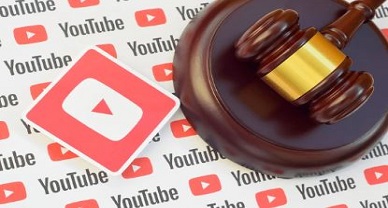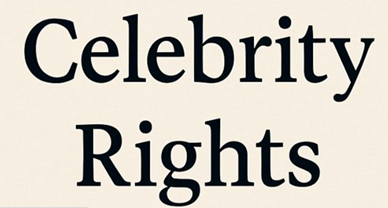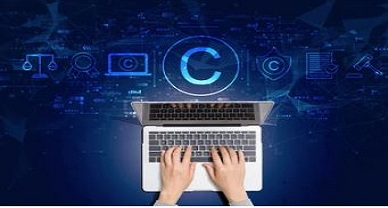Legal Analysis Of Copyright Issues In YouTube And Other Social Media Content
ABSTRACT
Technology advancements are linked to copyright, which gives authors of original works of literature, music, drama, or art, as well as audio recordings and cinematic films, a legal claim over their creations. The emergence of social networking sites has presented new difficulties for the government in defending the owners’ copyrights. Every day, there are several ways that someone’s copyright is violated on social networking sites. The nature and notion of copyright, as well as a brief overview of social networking sites, have remained the main focus of this research study.
The article then turns its attention to how social media culture is violating owners’ copyrights. It also discusses national and international viewpoints on the subject before going into the Indian judiciary’s stance on copyright violations in the social media era. The study concludes with recommendations on how to ensure a check on copyright infringement, with a focus on a few popular social media networking apps, like Facebook and YouTube.
INTRODUCTION
Social media networking sites have grown significantly in the last few years, enabling users to exchange information with just a single click. Users of social media platforms are encouraged to share content, both user-generated and third-party, and this has expanded the audience. Both individuals and organisations may now share, communicate, and market their goods or themselves. Social media sites include a number of tools for this purpose, such as re-posting, sharing, and re-tweeting[1].
Copyright law is in charge of controlling how literary, artistic, and theatrical works, among others, are used. The law of copyright regulates the activities of copying and disseminating the words of someone who has copyright over something online without that person’s consent. It is true that the growth of sharing culture and social media networks has affected the ability of copyright law to serve its intended function[2]. The political community has acknowledged in recent years the necessity of copyright laws pertaining to social networking sites.
INTER- RELATION BETWEEN COPYRIGHT VIOLATION AND SOCIAL MEDIA CULTURE
Among other things, copyright law regulates the use of works of literature, art, and theatre. When someone possesses copyright over something, it is illegal to reproduce and distribute that content online without that person’s permission. It is undeniable that the expansion of social media networks and sharing culture has impacted copyright law’s capacity to fulfil its intended purpose. The need for copyright regulations governing social networking sites has been recognised by the political community in recent years.
Protecting the rights of copyright holders has been simpler when it comes to books, plays, theatres, and movies. However, as the internet has grown, it has become more challenging to safeguard copyrighted works. A person is the owner of the copyright when they publish any creative work on social networking sites. Both copyright and social media are developing ideas, thus the government must devise measures to control infringement of copyrighted works in these spaces[3].
Due to excessive mobile use, social media has become a popular platform. This is because we are addicted to interacting digitally with people we know, half-know, and don’t know. Due to social media rights violations, the social media service Geocities was introduced in 1990[4]. Seven out of eight individuals are using the internet, according to the telecom regulatory authority’s estimation of the growing graph of social media and internet users in recent years. The younger generation makes up the majority of India’s third-largest internet user base.
Copyright violations through internet use are governed by the Information Technology Act and Rule 2001. Social media violations in the context of cybercrime are typically addressed. According to Section 52(1)(c) of the Copyright 1957, the copyright holder is not barred from temporarily or incidentally storing a work or performance in order to provide an electronic link[5].

Because social media platforms are so user-friendly, they are now the new target of copyright violations. Users submit private photos, movies, music, and written documents that may be infringed upon. Even while the fair use doctrine can protect violators if they are using it for educational purposes, copyright problems with social media platforms in India are becoming worse every day. On March 30, 2021, the Indian government modified the Copyright Rules, adding a few additional legal measures pertaining to copyright violations in social media. on recent years, there has been an increasing worry over copyright violations on social media, which affects the creators’ right to life as well[6].
There is a widespread belief that since the internet is so readily available and accessible, anyone can use it for free. This is untrue, though, as even if content is released when it is put on social networking sites, it does not grant others permission to use it however they see right.
The Delhi High Court highlights the difficulties of enforcing intellectual property in the digital sphere by emphasising the need to strike a balance between the rights of copyright holders and the legal protections granted to online providers, even in the case of Super Cassettes Industries Ltd. vs. Myspace Inc & Anr[7].
Conclusion
Because it frequently infringes copyright rules, using social media networks without authorisation might have legal repercussions. Reposting work without giving due credit violates the Copyright Act’s producers’ rights, especially on websites like Facebook and YouTube.
To protect protected content, platforms can send takedown notices and creators can bring infringement claims. Proactive steps including thorough material filtering, prompt takedown actions, and public awareness are crucial to preventing infringement. Platforms ought to put identity verification procedures in place and take legal action against infractions. In order to safeguard intellectual property rights and promote responsible social media use, platforms, producers, and users must work together in tandem with India’s legal system.
Author: Priyanka Gehlot, in case of any queries please contact/write back to us at support@ipandlegalfilings.com or IP & Legal Filing
REFRENCES
- Bondy Valdovinos Kaye, Copyright Gossips- Exploring Copyright Opinions, Theories and Strategies on YouTube, (10th Aug. 2021). https://journals.sagepub.com/doi/full/10.1177/20563051211036940
- Yudo Kamaru, Legal Analysis of Copyright Issues in YouTube (Sept. 2019). https://www.researchgate.net/publication/373006731_Legal_Analysis_Of_Copyright_Issues_In_Youtube_Content_Reviewed_From_Law_Number_28_Of_2014_On_Copyright
- Jamir O’ Neil, Lowering Barriers to Entry- YouTube, Fair Use and the Copyright Claims Board, Intellectual Property, Media and Entertainment Law Journal, Vol 33 No. 1 (2022).
- Susmita Dhar & Anshu Kumari Singh, Copyright Violation in Social Media Culture- A Legal Study in Indian Scenario, NLUA Journal of Intellectual Property Rights, Volume 2 Issue 2.
- Ning Zhang, Copyright Infringement on YouTube- Understanding Consequences and Best Practices, (29TH 2023). https://flatfeecorp.com/articles/Copyright-infringement-Youtube-consequences-best-practices
- Sneha Makaria, Shreeya Sharma & Amitesh Mishra, From Fair Use to AI Abuse- The Copyright Drama Unfolding on Indian YouTube, Naik & Naik Company, (22nd August 2024).
- Super Cassettes Industries Ltd. Vs Myspace Inc & Anr. (2017) 236 DLT 478 (DB).
[1] Susmita Dhar & Anshu Kumari Singh, Copyright Violation in Social Media Culture- A Legal Study in Indian Scenario, NLUA Journal of Intellectual Property Rights, Volume 2 Issue 2.
[2] D. Bondy Valdovinos Kaye, Copyright Gossips- Exploring Copyright Opinions, Theories and Strategies on YouTube, (10th Aug. 2021). https://journals.sagepub.com/doi/full/10.1177/20563051211036940
[3]Yudo Kamaru, Legal Analysis of Copyright Issues in YouTube (Sept. 2019). https://www.researchgate.net/publication/373006731_Legal_Analysis_Of_Copyright_Issues_In_Youtube_Content_Reviewed_From_Law_Number_28_Of_2014_On_Copyright
[4] Jamir O’ Neil, Lowering Barriers to Entry- YouTube, Fair Use and the Copyright Claims Board, Intellectual Property, Media and Entertainment Law Journal, Vol 33 No. 1 (2022).
[5] Ning Zhang, Copyright Infringement on YouTube- Understanding Consequences and Best Practices, (29TH May. 2023). https://flatfeecorp.com/articles/Copyright-infringement-Youtube-consequences-best-practices
[6] Sneha Makaria, Shreeya Sharma & Amitesh Mishra, From Fair Use to AI Abuse- The Copyright Drama Unfolding on Indian YouTube, Naik & Naik Company, (22nd August 2024).
[7] Super Cassettes Industries Ltd. Vs Myspace Inc & Anr. (2017) 236 DLT 478 (DB).


